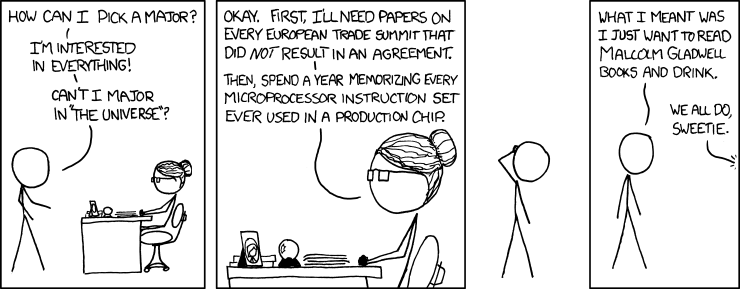 |
| Site of the proposed Rosemont Copper Mine in the Santa Rita Mountains, 30 miles south of Tucson, AZ. |
When I was in fourth grade, I remember
learning about the 3 C's of Arizona's economy: cotton, copper, and
cattle (and oh, the havoc those three have wreaked). At the time, I
didn't understand why so much fuss was made over this; I'm not sure
anyone really made a true effort to explain economics to fourth
graders, and I don't blame them, since I'm hard pressed to understand
any of it today. I did know that many of my not-so-distant Arizona
relatives - people that I met at family reunions, people who wore
cowboy boots and smoked Marlboros on the back porch - really! - were
either ranchers or miners, and when I thought of them I inevitably felt the romantic pull of a notion I had, impossible to articulate but very real, of my family as makers of the Wild West.
In recent years, I've heard that a 4th
C has been added: climate. Our lovely winter weather draws retirees'
Winnebagos to Arizona like lumbering moths to a flame, and fueled a
frenzy of building and development that only the near-collapse of the
domestic economy could slow - which it did. But that doesn't mean
that the other three C's are gone; in fact, yesterday I attended a
Forest Service hearing regarding the draft environmental impact statement for the development of the Rosemont Copper mine, 30 miles
southeast of Tucson in the Santa Rita mountain range.
I attended the hearing to speak out against this mine, and I did so. But it wasn't without
acknowledgment of the complexity of this issue, which I feel is often
lost as both sides batten down the hatches and prepare for a war in
which the other side not only has no claim to legitimacy, but is
morally repugnant. As much as I oppose the mine itself, I have to
acknowledge that those who support it are simply coming from a
different perspective - they are not necessarily scientifically
illiterate morons, as the anti-mine crowd seemed to perceive (ok, so
there's a high level of scientific illiteracy happening, but that
doesn't make those who suffer from it morons, or somehow inherently
less valuable humans than the rest of us).
There are plenty of reasons to oppose this project. It would destroy a large swath of the Santa Ritas, one
of the least-trammeled ranges in southern Arizona. It would have
unpredictable consequences for the watershed, including reducing
groundwater levels and the flow of springs that feed important
riparian areas throughout the range (well, the only thing that's
unpredictable is how much
impact the mine will actually have; there's no question that it will
be highly destructive.) In a regional economy that currently brings
in millions of dollars from tourism, the mine would destroy land of
significant scenic, biological, and recreational value. The list
goes on and on. I heard several interesting arguments during the
hearing yesterday, one from a former mining engineer, saying that the
copper vein that is to be mined is weak, and that the project is
doomed to failure for many technical reasons that I wish I
understood.
The argument for
the mine, of course, is jobs. In an economy where the real estate,
construction, and development industries have all crashed, Arizona's
4th C is no longer working out so well. And so the lure of copper
once again has a hold on us - mining can provide jobs, and copper is
an increasingly valuable commodity due to its use in high-tech
applications. I fully acknowledge that without copper, I wouldn't be
typing on a computer right now. I wouldn't have been able to drive a
car to the hearing yesterday. We all use the products of these
extractive industries, so how can we actually reconcile opposing them
in our own backyards?
Then there's the
uncomfortable question of what I can only think to call a kind of
class warfare around these issues. Overwhelmingly, though not
without exception, those who spoke out against the mine were
well-educated, well-off folks who opposed the project on
environmental grounds or because it threatened their way of life,
which often involved a ranchette where they had retired a few years
before to run a few horses and open a bed-and-breakfast. Those who
spoke in support of the mine did so because it would support their
jobs - for example, a trucking company brought in a busload of their
employees who would be hired to truck copper away from the mine. The
privilege of opposing these projects belongs to the wealthier folks
in our society, or at least those of us whose jobs don't rely on
these types of industries. And who are we to try to argue that
habitat is more important that jobs?
Despite these
complications, I still oppose this mine, mostly because it seems to
cost so much for so little (or unpredictable) potential benefit.
Assuming a cost-benefit analysis could accurately value things like
habitat and scenic beauty, I feel confident
that the costs of the project would outweigh the benefits. The
deeper conflict is how to find alternatives to the cultural and
economic paradigms that require such a heavy toll in terms of natural
resource extraction, and deeper still seems to be the divide between
worldviews represented at the hearing yesterday. The people around
me were dismissive and demeaning towards those who spoke in favor of
the mine; I have no doubt that the other side of the room snickered
when I talked about the threats to riparian habitat. After all, what
use is a bird when there's no food on the table?


















